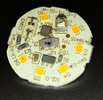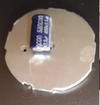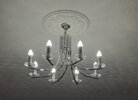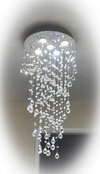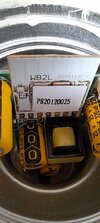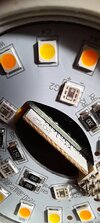Spotted on Reddit..........
The light fixture in our bathroom died and the landlord replaced it with a fixture that simply says
“Max x40W Type E12”
We put in GE LED bulbs our local hardware store recommended that were like 45w equivalent but actually around 5 watts. They started flickering and all blew out within months. The landlord’s electrician claimed we need to use bulbs that draw around 30 watts each because otherwise they’ll get “too much power” and blow out.
This presents an issue because that basically limits us to incandescent bulbs that are hard to find. Also I can’t find anything online who says you can’t use wattage lower than a fixture specifies. Any advice is appreciated!
Best reply I found was this
"Your electrician is what we in the trade used to call a '****ing imbecile'."
Electrician told us that our light bulbs were blowing out because they are too “low wattage”… does this make sense?
The light fixture in our bathroom died and the landlord replaced it with a fixture that simply says
“Max x40W Type E12”
We put in GE LED bulbs our local hardware store recommended that were like 45w equivalent but actually around 5 watts. They started flickering and all blew out within months. The landlord’s electrician claimed we need to use bulbs that draw around 30 watts each because otherwise they’ll get “too much power” and blow out.
This presents an issue because that basically limits us to incandescent bulbs that are hard to find. Also I can’t find anything online who says you can’t use wattage lower than a fixture specifies. Any advice is appreciated!
Best reply I found was this
"Your electrician is what we in the trade used to call a '****ing imbecile'."


